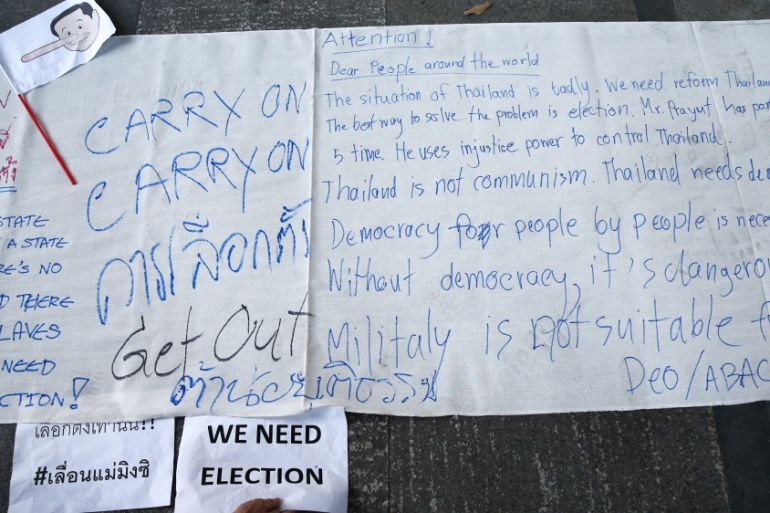Thai king issues decree for first election since 2014 coup
Royal decree gives the country’s Election Commission five days to announce when the long-delayed polls will take place.

Thailand‘s King Maha Vajiralongkorn has issued a decree announcing the holding of the country’s long-delayed general election, the first since the military took power almost five years ago.
The decree, published in the Royal Gazette on Wednesday, gives the Election Commission five days to announce when the much-anticipated vote will take place.
Officials had earlier promised to hold the polls on February 24 but that date appears in doubt as Wednesday’s decree was not published earlier this month as expected.
The polls will be the first since the military government toppled the administration of Yingluck Shinawatra in a May 2014 coup, rewriting the constitution, muzzling dissent and appointing key military allies across the bureaucracy.
The decree means election campaigning can officially start, although an array of new parties – including some aligned to the military, others to the still powerful Shinawatra clan – have already begun meetings and recruitment.
Analysts say the military is positioning itself for a return to government through its proxy party, with Prime Minister Prayuth Chan-ocha angling for a role as civilian leader after the election.
The army-linked Phalang Pracharat party led by members of the military government held a recruiting drive in the traditional rural base of Yingluck and her brother Thaksin, who was toppled by an earlier coup in 2006.
Questions remain over whether Pheu Thai, the Shinawatras’ main party, still draws the loyalty of its vote banks in the poor, rural north and northeast without the star power of its brother-sister duo.
Both remain in self-exile to avoid convictions they say are politically motivated.
Thaksin has launched a weekly podcast sharing his views on Thai society and economy, while Yingluck has embarked on several rounds of photo ops.
Pheu Thai, under different name variations, has won every election since it was founded in 1998 by Thaksin, a telecoms tycoon. Its administrations have since been overthrown twice by military coups.
In October, Pheu Thai named 86-year-old senior party member Viroj Pao-in, a police lieutenant general, as its official leader, while Putham Vechayaychai kept his role as secretary-general.
‘Hybrid democracy’
Even if the military government’s rivals do well in elections, any new civilian administration is expected to be hamstrung by the military-scripted constitution.
It allows for an upper house to be fully appointed by the military government rubber-stamp assembly, while embedding 20-year strategies governing everything from the economy to education policy.
“You can call it hybrid democracy,” Somjai Phagaphasvivat, a political analyst and academic at Thammasat University, told AFP news agency.
The uncertainty over the election date prompted small demonstrations in the capital, Bangkok, this month, but analysts do not expect an immediate return to the violent and paralysing street protests that defined Thailand’s politics since the fall of Thaksin.
The election is expected to be held before the coronation of Thailand’s king in early May.